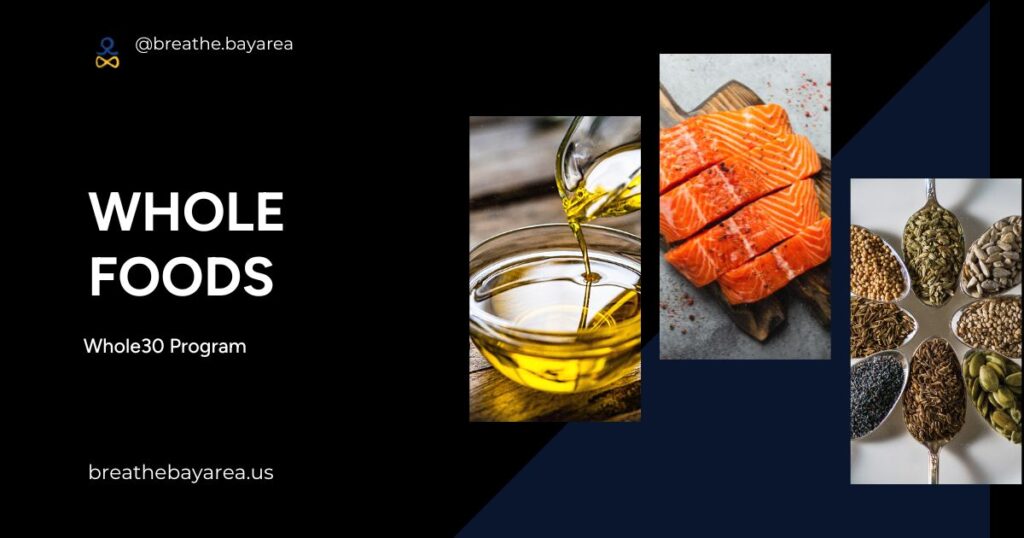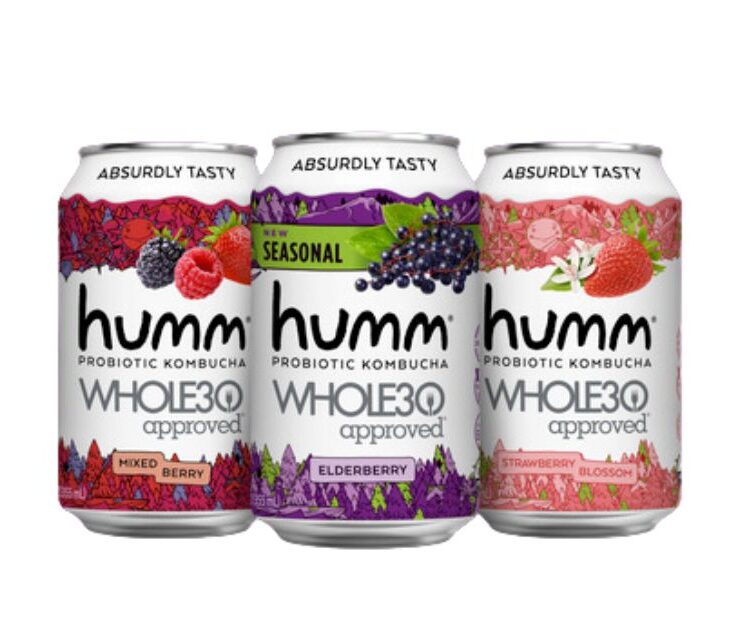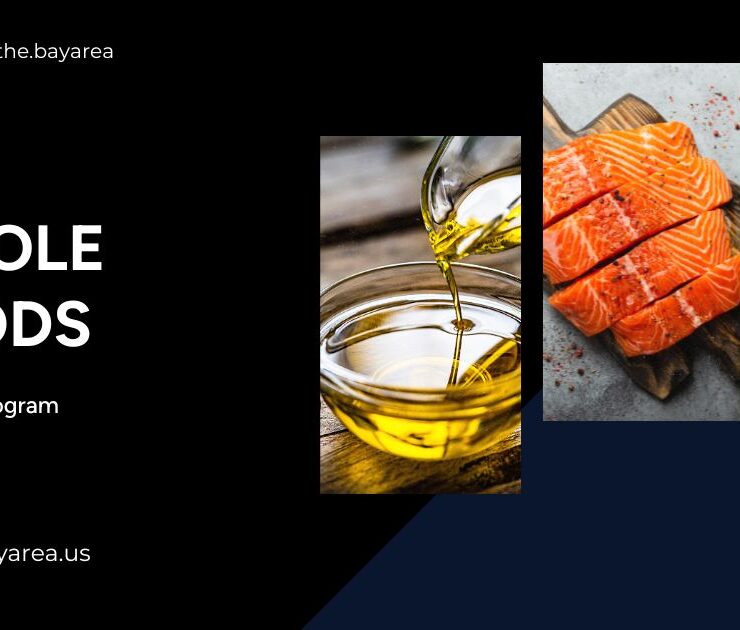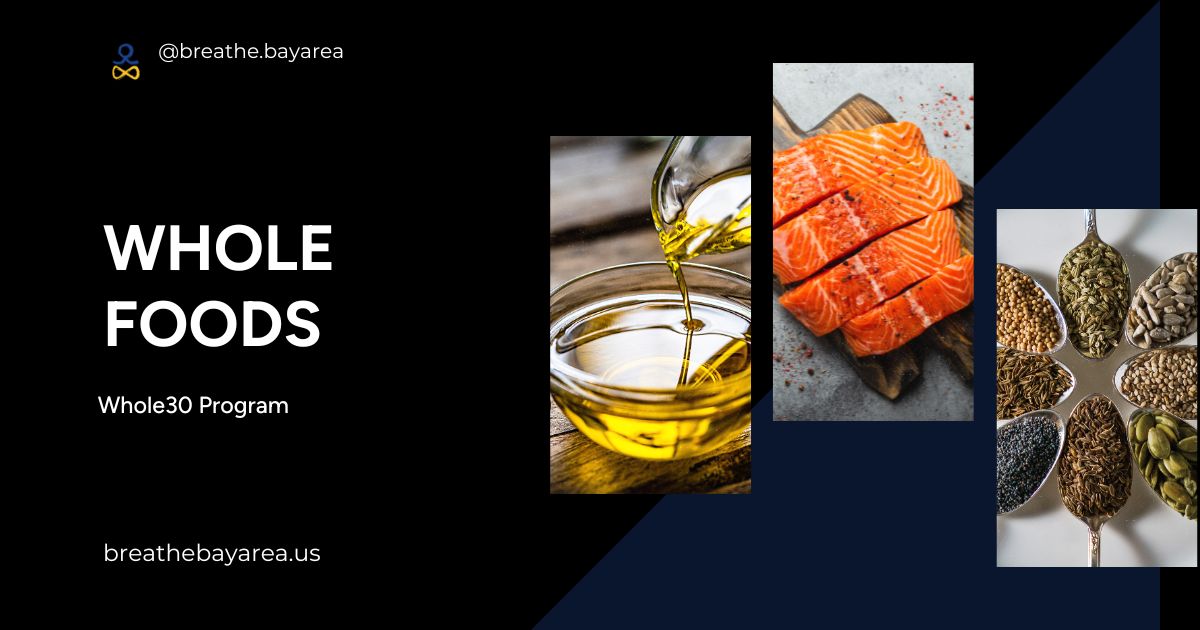Whole 30 Recipes: A Month to Renew Your Body and Mind

Meet Rochelle, your go-to wellness advocate living her best life…
Dawn, the co-founder of Verima, a wellness sanctuary, and a…



In our quest to uncover the best wellness experiences around the Bay Area, from week-to-week yoga classes that ground and uplift to rejuvenating hikes through our stunning landscapes, we realize how integral nutrition is to supporting our mind, body, and soul. The Whole30 diet, with its focus on clean, whole foods, seems like a natural complement to this lifestyle. While we haven’t tried the diet myself, our research into Whole 30 recipes and principles suggests it could be a valuable part of a holistic approach to wellness. We are curious to hear from those who’ve woven Whole30 into their active lives, particularly how it has enhanced their physical activities and overall well-being.
Understanding the Whole30 Program
At its core, the Whole30 Program is built on the principle of eliminating certain food groups from your diet for 30 days—those believed to negatively affect health issues like cravings, blood sugar levels, digestion, and inflammation. By cutting out foods such as grains, dairy, legumes, sugars, and alcohol, the program aims to reset your body’s nutritional balance. This process helps identify foods that may not agree with your body, allowing you to understand better how different foods influence your overall well-being.
The Whole30 Approved® label signifies products that are 100% compliant with the Whole30 program, ensuring they adhere to specific health and quality standards, especially concerning animal welfare. This label also reflects a vetted partnership between Whole30 and the product’s company, aligning in values and mission with the Whole30 community. “Featured” products indicate an affiliate partnership, offering a way for the community to support Whole30 through purchases.
Benefits of Whole30
The Whole30 program, with its focus on whole, unprocessed foods, piqued our curiosity—not as a diet but as a mindful practice to understand how certain foods impact our bodies and minds. From increased energy and improved sleep to heightened mental clarity, the reported benefits align with the holistic health journey we advocate for. Though we haven’t strictly followed any single diet, the principles of Whole30 resonate with us, emphasizing the importance of listening to our bodies and making conscious food choices that enhance our overall health and vitality.
What is Whole30?
Whole30 is a 30-day elimination diet that involves avoiding certain foods that, according to the founders, can cause inflammation and cravings, and negatively affect hormones and gut health.
What can you eat on Whole30?
Eat real food. As defined by Whole30, that includes meat, seafood, eggs, vegetables, fruit, healthy fats (like olive and coconut oils, and ghee), herbs, spices, and seasonings.
What’s not allowed on Whole30?
You’ll avoid grains, legumes, dairy, alcohol, added and artificial sugar, and foods with common additives like carrageenan, MSG, or sulfites. You also can’t use Whole30-approved ingredients to make treats, such as pancakes, bread, muffins, brownies, pizza crust, or ice cream.
Do doctors recommend Whole30?
While safe, this is not a diet that’s typically recommended by the medical profession, as there are no peer-reviewed studies to prove its efficacy. Some experts have expressed concern about how restrictive it is, as well as how it eliminates nutrient-dense foods like whole grains and beans.
What You Can Eat on Whole30
Now that you know how this program works and the benefits of a 30-day elimination, what are the basic rules of the program? Let’s start with a food list of what you can eat on Whole30:
All vegetables, including potatoes Fruit, including strawberries, watermelon, apples, oranges, and bananas Seafood, such as fish, oysters, shrimp, and mussels Unprocessed meats, including beef, chicken, and pork Nuts and seeds Eggs Olive oil and coconut oil Black coffee What You Can’t Eat on Whole30 Meanwhile, the following foods are off-limits on this program: Dairy Grains (corn, wheat, rice) Added sugar Legumes (chickpeas, lentils, soy) Alcohol Pasta Bread Processed additives (carrageenan, MSG, sulfites) French fries and potato chips
Foods to Eat and Avoid
For the Whole30 program, focus on whole foods: all vegetables, fruits, unprocessed meats (beef, chicken, pork), seafood, eggs, and natural fats (olive oil, coconut oil). Seeds and nuts (except peanuts, which are legumes) are also encouraged. Strictly avoid grains (wheat, corn, rice), dairy products, legumes (beans, lentils, peanuts), alcohol, added sugars, and artificial sweeteners.

When dining out, opt for dishes with simple ingredients and ask for modifications to fit Whole30 rules. To manage cravings, stock up on compliant snacks and explore Whole30 recipes for satisfying, nutrient-dense meals. This approach helps maintain the diet’s integrity, even in challenging situations.
Precautions and Preparations
Before embarking on the Whole30 journey, it’s crucial to consult with a healthcare professional, especially if you have pre-existing health conditions or dietary restrictions. This ensures the program aligns with your individual health needs. Mentally, prepare by setting clear, manageable goals and reminding yourself of the reasons you’re starting this program. Physically, begin transitioning away from non-compliant foods in your pantry and start incorporating more whole foods into your meals. Planning and preparation are key to navigating the Whole30 successfully, making it easier to stick to the program and maximize its benefits.
Implementing Whole30 in Your Life
Starting the Whole30 from my perspective involves embracing the journey with a holistic mindset. First, clear out non-compliant foods from your kitchen to set yourself up for success. Next, invest time in meal planning and prepping, focusing on a variety of nutrient-dense foods to keep meals interesting. I find shopping with a list based on weekly meal plans crucial to avoid temptations. Staying compliant means being prepared, especially when on the go; pack Whole30-friendly snacks. Embrace the community for support, sharing experiences, and tips to stay motivated and on track.

Overcoming Challenges
Participants may face challenges like navigating social events without compromising their Whole30 commitment or managing withdrawal symptoms from eliminated foods. To overcome these, planning ahead is key—bring Whole30-compliant dishes to gatherings and understand menu options beforehand. For withdrawal symptoms, focus on the positive changes and visualize the benefits. Stay motivated by connecting with the Whole30 community for support and inspiration. Remember, each challenge overcome is a step closer to a healthier, more mindful relationship with food.
Reintroducing Foods
After completing the Whole30, reintroduce eliminated foods one group at a time, observing how each affects you. Start with less problematic foods, incorporating them back into your diet while monitoring for any physical or emotional reactions. This careful process helps identify food sensitivities and understand their impact on your body. Based on these observations, adjust your long-term eating habits to maintain the benefits experienced during the Whole30, creating a personalized diet that supports your health and wellness goals.
Maintaining Long-Term Health
Leverage the insights from your Whole30 experience to craft a balanced, personalized diet that suits your unique health needs and preferences. Reflect on how different foods impacted you during the reintroduction phase to identify what works best for your body. Use this knowledge to make informed choices, focusing on nutrient-dense, whole foods while allowing flexibility for life’s moments. Remember, the goal is a sustainable, healthful eating pattern that supports your long-term well-being, encouraging a mindful and enjoyable relationship with food.
Share Your Feedback
The Whole30 diet offers a transformative journey towards improved health and well-being, encouraging a deeper understanding of how food affects us physically and emotionally. By focusing on whole, unprocessed foods and eliminating those that may cause adverse effects, Whole30 has the potential to significantly enhance your relationship with food. We’re eager to hear about your experiences with the Whole30 program. Share your feedback, discoveries, and how the program has impacted your journey towards a healthier life. Your stories inspire and guide others contemplating this path.
Meet Rochelle, your go-to wellness advocate living her best life in sunny Palo Alto, California! With her contagious positivity and passion for sharing knowledge and information, Rochelle is excited to guide people looking to achieve balance and bliss in both mind and body. Born and raised in New Orleans, Rochelle grew up immersed in dance and has always had a deep love for all things wellness especially when it comes to fitness, cellular repair utilizing nutritional food and supplements, and the latest non-invasive skincare technologies. She is a registered dietitian (RD) and understands food as medicine whenever possible. When she's not busy inspiring others to live their healthiest lives, you can find her at early morning workouts at the gym, on her Peloton, enjoying a glass of wine with girlfriends, or spending time with her husband, two daughters, cat, and chickens.
Dawn, the co-founder of Verima, a wellness sanctuary, and a devoted mother of three, embodies the essence of passion and perseverance. Residing in Palo Alto, she seamlessly blends her roles as an entrepreneur, ballet teacher, and health advocate, particularly for PANS, driven by her son's condition. With a life dedicated to wellness, family, and community involvement, including volunteering at local schools and savoring the arts, Dawn is a testament to the power of a purpose-driven existence. Her journey illustrates the formidable force of a mother on a mission, inspiring through her advocacy and commitment to creating a healthier world. Follow her insights and adventures @Verimadawn, where she shares her passion for wellness and the balance of business and motherhood.






